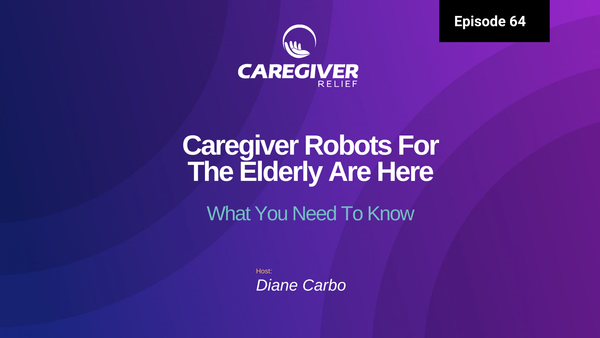Late Stage Dementia Care: Are Hospitalizations Necessary?
A study found that 20% of late stage dementia patients nationwide experience at least one unnecessary admission to the hospital. These hospitalizations may be driven by financial incentives under Medicare and Medicaid and can lead to negative impacts on patients.

Late stage dementia care is a time when the patient should be as comfortable as possible. They should have very little change to their present environment.
A study released by the New England Journal of Medicine reports that one in five individuals in late stage dementia… living in a nursing home setting … are being transferred to the hospital or other setting in the last 90 days of their life. Death and end stage dementia is a topic many caregivers need to prepare for and plan ahead.
This study reports that in the last three days of life… repeated hospitalizations occur. These unnecessary admission are for the expected complications at the end of life. In the late stage of dementia, treatment often given does not extend life or improve the quality of life.
The lead author, is a Brown University health economist of this study. Pedro Gozalo finds that this practice may be due to financial reasons. The present Medicare system … pays nursing homes a higher rate for a patient admitted to the hospital. They must have 3 day stay. When they return to the nursing home… the patient may qualify for skilled nursing services. This means the nursing home will be reimbursed at a higher Medicare rate. Instead of the Medicaid rate. The present financial incentives under Medicare and Medicaid… actually encourage a nursing home to send their patients out to the hospital.
There are many problems with this present system. These regulations have a negative impact of the patient in the late stage of dementia.
There is :
- An increase in medical errors
- An interruption in the continuity of care
- Increase in confusion
- And stress for the patient that already has cognitive issues.
From the middle stage through the late stages of dementia… a sudden change in environment… and unfamiliar people …are known to cause undue stress and confusion.
More on Late Stage Dementia Care: Are Hospitalizations Necessary?…
“Such patterns of transitions are burdensome. Particularly since… the overwhelming majority of family members state the main goal of care is comfort,” said study co-author Joan Teno. He is a professor of health policy. He practices at the Alpert Medical School of Brown University as a palliative care physician. “These transitions reflect the inefficiency of our health care system. Similar outcomes could be achieved by keeping these patients in the nursing home setting.”.
Of course, this trend varies from state to state due to :
- Cultural differences on end of life
- The current long term care market conditions
- Financial incentives.
The co authors of this study… included researchers from Harvard University and Dartmouth College. These researchers found 20% nationwide, of late stage dementia patients.. experience at least 1 unnecessary admission to the hospital.

Economist Jonathan Skinner from Dartmouth College, a co author of the study, reports that these hospitalizations… have a negative impact on the federal treasury. This is believed, by the co authors, to hurry the decreasing of the Medicare trust fund to run out of money.
A state-by-state report… of the rate of end of life hospitalizations … as part of end of life dementia care is available from Brown University.
Late Stage Dementia Care: Are Hospitalizations Necessary?…
The cultural differences show that Blacks and Hispanics patients with late stage dementia… were also more likely than Caucasians to experience transfers to the hospital at the end of life.
Researchers analyzed federal databases of nursing home and Medicare records… between the years of 2000 and 2007. The study found that 474,829 residents in the nursing homes … older than 66 years of age, had late stage dementia. These residents lived in a nursing home for 120 days or more before their death.
Of these, 90,228 residents with late stage dementia… had been admitted to the hospital or transferred to another setting at least once.
The study considered:
- A transfer in the last three days of life
- Admission to a different nursing home … than the patient previously lived in before they went to the hospital
- And /or repeat hospitalizations in the last 90 days of life.
The study found that the reasons for the hospitalizations were :
Pneumonia
Urinary tract infection
Dehydration.
All of these are conditions that are complications that occur at end of life. And could and should be easily treated in a properly equipped and staffed nursing home. Due to the present long term care environment … all skilled facilities are able to handle these various diagnoses.
The difference in the various states… and the rate of transfers to different settings… correlates with other indicators of poor end-of-life care, Gozalo noted.

More on Late Stage Dementia Care: Are Hospitalizations Necessary?…
The study compared patients with late stage dementia living in the long term care markets with the lowest rates of transfers… to those who lived in the regions with the highest rates of transfers. It was found that those in the highest rates of transfers… were three times more likely to have a feeding tube inserted.
These late stage dementia patients were more than twice as likely… to be admitted to an intensive care unit in the last 30 days of life. These patients were more than twice as likely… to have developed an advanced pressure ulcer, or bed sore. Studies show that those admitted to an intensive care unit die with in 24 hours of admission.
These transfers to other settings… during late stage dementia, are signs of an ineffective health care system.
The goal of late stage dementia care as a patient nears the end of life, is often to maximize comfort. The burdens of hospitalizations.. place on a person with late stage dementia usually outweigh the benefits.
“Our research calls for efforts to reform health care payment that create incentives to improve advance care planning and care coordination,” Gozalo said. “Current reform efforts like accountable care organizations that bundle both the hospital and post-acute care payments could begin to address some of these perverse incentives. We need financial incentives to make sure that people are getting the right care in the right place at the right time.”
Another study found… that seventy one percent of those patients in late stage dementia care.. die within 6 months after admission. Of those patients, only eleven percent are ever referred to hospice care. Palliative care services are offered.
Instead, aggressive treatments offered for late stage dementia care is not only medically inappropriate… it has a low rate of success. These aggressive treatments often lead to a faster decline or death.
Studies show that remaining in a nursing home on hospice or with quality palliative care until end of life…. long term outcomes were better… than those compared those that were admitted to a hospital.

Understanding Dementia at the End-of-Life Stage: Providing Comfort and Care
Dementia is a progressive and ultimately fatal condition, but there are ways to ensure that your loved one's last years are spent in comfort and security. While the end stage of dementia can vary from person to person, it is important to familiarize yourself with its signs and symptoms in order to support your loved one during this time.
Late-stage dementia may share common signs and symptoms across different types of dementia. These signs can help caregivers and families understand when a person with dementia is nearing the end of their life. It is crucial to recognize these signs and provide appropriate care and attention.
In the final days before death, a person with end-stage dementia may experience a rapid decline in cognitive function, alternating periods of consciousness, increased sleeping, irregular breathing, restlessness, and difficulty swallowing. These indicators suggest that end-stage dementia is near.
The duration of end-stage dementia is typically the shortest stage of the disease, lasting about 1 to 2 years. However, it is difficult to determine how long a person will have end-stage dementia before passing away. Healthcare professionals specializing in palliative and hospice care can offer families valuable insights into the progression and timing of this stage.
Life expectancy for individuals with dementia can vary depending on the type of dementia. On average, someone with Alzheimer's disease lives 8 to 10 years after diagnosis. Vascular dementia and Lewy body dementia have shorter life expectancies, while frontotemporal dementia progresses more rapidly.
Palliative care, specialized healthcare for those nearing the end of their lives, plays a crucial role in managing end-stage dementia. As the demands of caring for a loved one become overwhelming, palliative care professionals provide support and guidance. They possess the expertise to identify signs of discomfort and pain that may be challenging for others to recognize. Additionally, families may consider working with a death doula to help both the person with dementia and their loved ones prepare for the end.
While many dementia patients prefer to stay at home during their care journey, it may not be feasible for everyone. Home care requires significant time and financial investment. However, if possible, providing care in a familiar environment can reduce symptoms like aggression and confusion.
When advanced symptoms appear, it may be appropriate to seek hospice care. Hospice professionals ensure that the person is comfortable and free from pain during their final days.
By understanding the signs of end-stage dementia and exploring appropriate care options, you can help your loved one find peace and dignity at this stage of their life.
You might also like this article:









